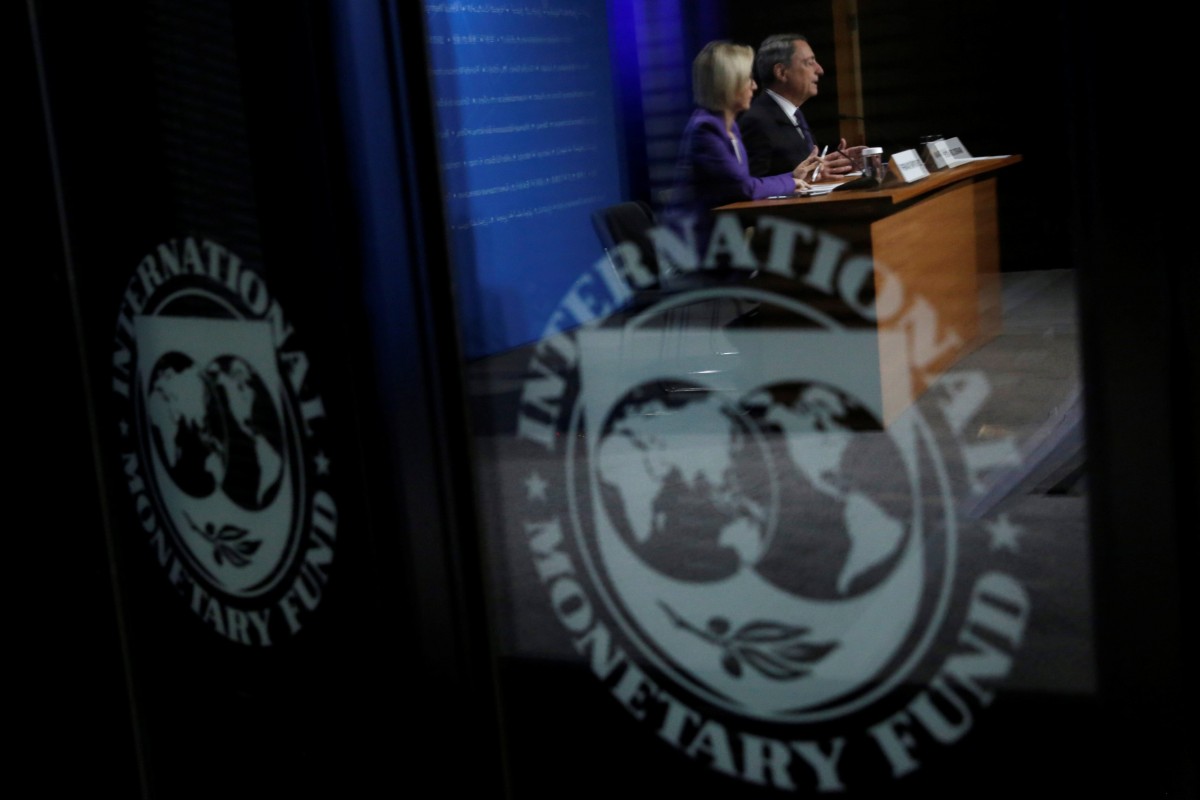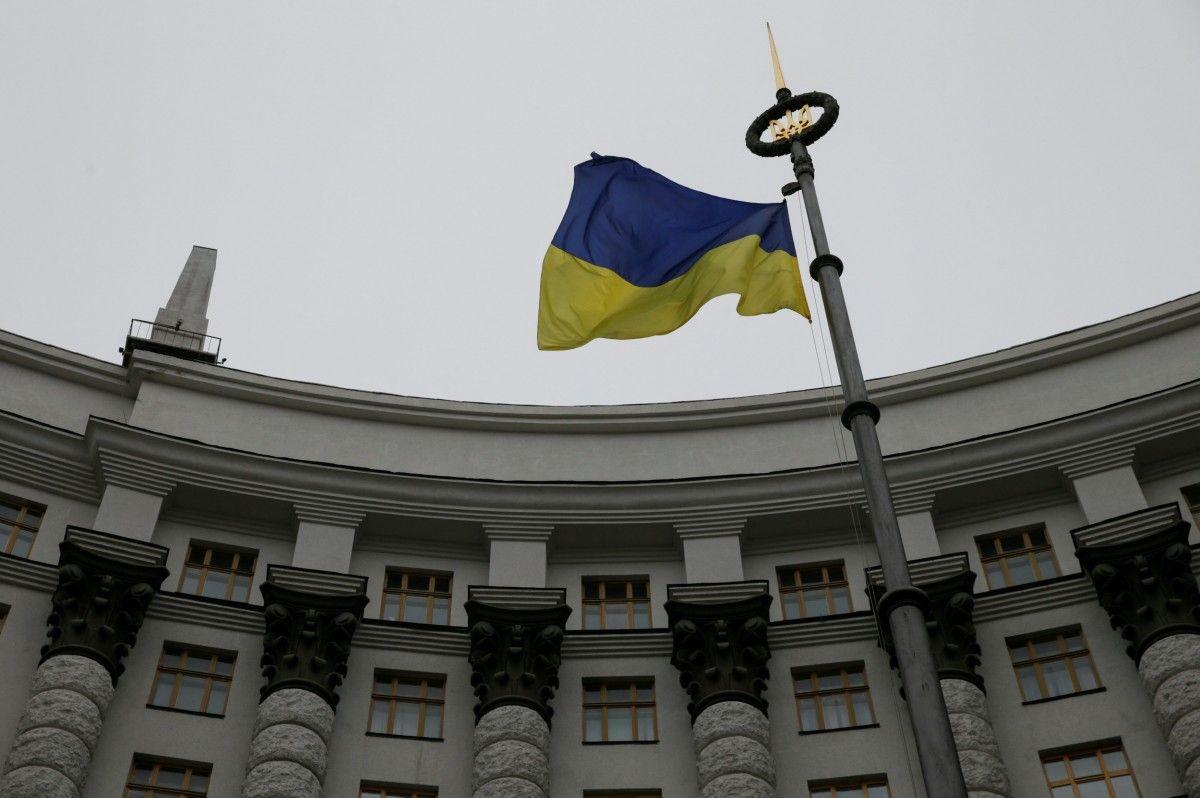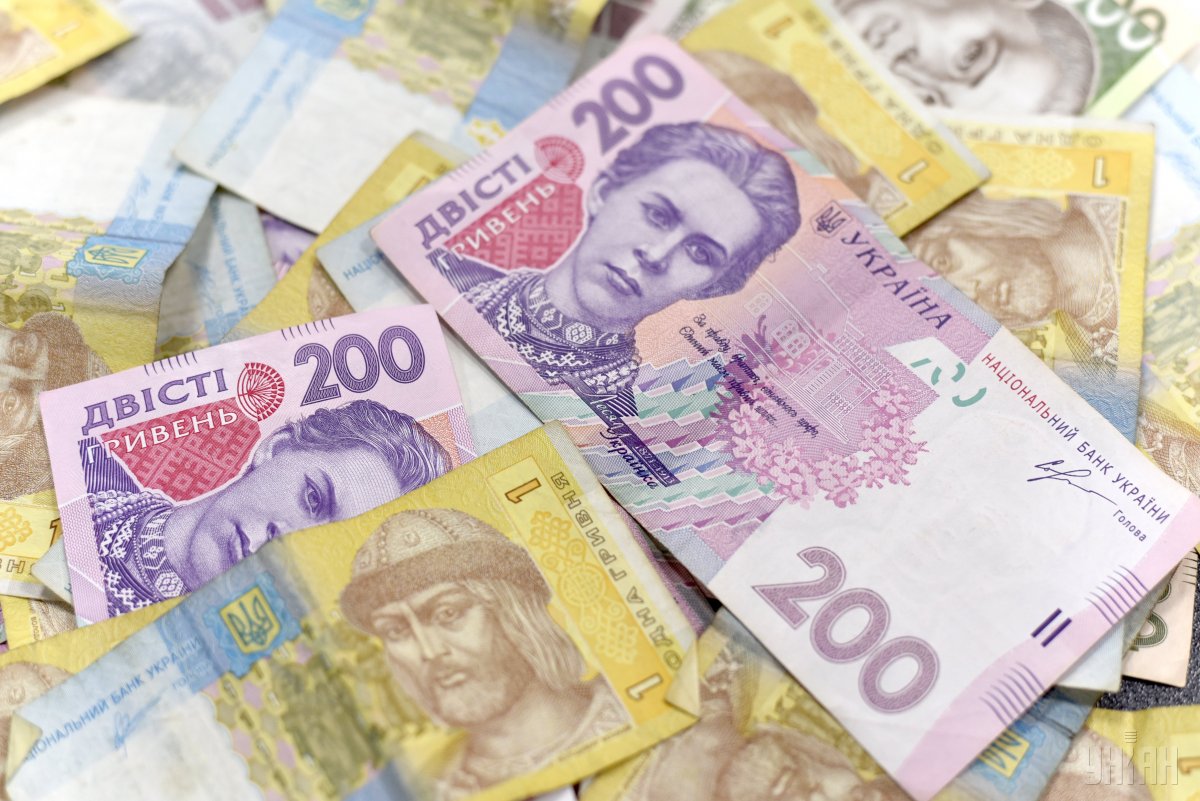
Week's balance: American locomotives to get on Ukrainian tracks, IMF demanding anti-corruption court, inspections of Ukrainian businesses returning
Ukraine plans to purchase several hundred American diesel locomotives over the next decade, the IMF insists that the country create an Anti-Corruption Court and implement reform of the energy sector, while the government unexpectedly lifted the moratorium on business inspections, and the NBU reported on disappointing performance by banks in 2017 - these are the main economic news of the outgoing week.
Ukrzaliznytsia has launched a "locomotive revolution". At the end of the week, the Ukrainian rail operator signed off a very important framework agreement worth $1 billion, giving a green light to the joint production of locomotives with General Electrics.
The agreement provides for a 15-year partnership – the modernization of up to 74 locomotives, the delivery of up to 225 new GE Evolution-series locomotives until 2034 and their long-term maintenance.
The next important point is the sales contract between GE and Ukreximbank for the delivery of 30 GE GE33AC diesel locomotives at the end of 2018 and early 2019.
"This is a very important day for the entire economy. I can reveal the secret of how it all began. During my visit to the United States in June, we talked with [U.S. President Donald] Trump that our countries' relations should go practical. For many years, Ukrzaliznytsia has been underfinanced. The company needs rolling stock, new locomotives. A contract worth $1 billion was signed very quickly. GE's reputation is very high. It comes to [work in] those countries where tolerance for corruption is very low. Therefore, [its] arrival in Ukraine is an indicator of trust," said Ukrainian President Petro Poroshenko, who was present at the signing of the contract.
Ukrzaliznytsia has been facing a critical situation with locomotives. The lack of capacities prevented factories from having their products delivered in time, including for export. As a result, the country's economy has been suffering.
If everything goes as planned, Ukrzaliznytsia will get new opportunities. Besides, the important point is the localization of production in Ukraine, allowing Ukrainian enterprises to be involved in cooperation with GE and will become suppliers of goods and services for GE.
U.S. Ambassador to Ukraine Marie Yovanovitch, who attended the signing ceremony, said: “We believe that your vision of using American technology for the transformation of the Ukrainian railway system will give a boost to the entire economy."
According to her, the agreement will have a significant impact on bilateral trade relations. "$ 1 billion is a big sum, even for General Electric. But what is even more important is that it will create hundreds of new jobs in the United States and Ukraine. And this will promote new supplies. And moreover - we have achieved the integration of our economies," Marie Yovanovitch emphasized.
Many foreign companies (such as Bombardier, Alstom, Siemens and CRRC) have earlier shown interest in the Ukrainian market more than once, but that did not go beyond general phrases.
By the way, General Electric are not limiting themselves to cooperation in infrastructure projects. In 2018, the company will supply 26 wind turbines for the wind power plant of DTEK's energy holding in the Zaporizhia region.
IMF mission goes, discussion continues

The International Monetary Fund is unshakable in its demands to Ukraine. Such a conclusion arises following a Kyiv visit of our key creditor's technical mission. Apparently, the attempt of the Ukrainian authorities to ease the terms of cooperation with the IMF has not been a success.
As before, the IMF insists on the urgent consideration in parliament of the bill on the anti-corruption court, taking into account the amendments, as well as on raising gas prices.
It seems that the IMF technical mission was invited by the Ukrainian authorities, who were trying to agree on easing the terms. However, so far, the Fund has given no signals about the softening of their stance or changing requirements.
"It is now important that the authorities move expeditiously with parliamentary consideration of the draft law on the anti-corruption court, while ensuring that the necessary amendments are adopted during the parliamentary process to make the approved law fully consistent with program commitments and the recommendations of the Venice Commission of the Council of Europe," the IMF said in a press release following the visit of the Fund's technical mission to Ukraine," said in a press release following the visit of the Fund's technical mission to Ukraine.
"Further progress also needs to be made on other delayed measures that are necessary to achieve program objectives, including in the energy sector and with regard to fiscal policy. Discussions will continue in the coming weeks," reads the report.
Minister of Finance of Ukraine Oleksandr Danyliuk says the visit of the IMF mission to Kyiv was generally fruitful, but no final agreement has been reached yet on the creation of an anti-corruption court and energy reform.
"I believe that mission's visit was fruitful. "We have advanced on certain issues quite actively. There is some progress, for example, on the issues of an anti-corruption court and energy reform. But a final agreement has not been reached yet," Danyliuk said.
At the same time, he has stressed that the joint work with the IMF is ongoing. The minister expressed hope that it will continue in the future. To this end, the government, in cooperation with Ukraine's parliament, will take a number of decisions, essential primarily for Ukraine.
Prime Minister Volodymyr Groysman took up the same position. At a high-level international meeting on reform in Ukraine this week, he said that a decision on one of the key requirements of the IMF - the creation of the anti-corruption court - will be taken in the coming months.
"Fighting corruption is Ukraine's main task for 2018 ... Our task is to make a decision in the coming months to create an independent, effective anti-corruption court. This tool will put an end to those many discussions about corruption in Ukraine. This will be the verdict to those corrupt officials who have confused their pocket with that of the state and their private interests - with state interests," Groysman said.
The prime minister also called on the government not to fear the creation of the anti-corruption court.
"We must join forces, and we are already doing it, so that a few months later an anti-corruption court is established in Ukraine. There is nothing to fear. Nothing. The only thing is to create it not in someone's favor, but openly, publicly, so that there is a quality selection of judges and international experts give their recommendations. They can even be Ukrainians. We need crystal-clear judges, and then everything will fall into place," the prime minister said.
During the government meeting, Groysman highlighted the word "recommendations" regarding the role of international experts in the selection of judges. At the same time, the head of government stressed the fact that there is no alternative to creating an anti-corruption court.
"This is a difficult task, I know it, but there is no other option," Groysman said.
Moratorium sunk into oblivion

Quite unexpectedly, the topic of business inspections has rocked the Ukrainian media space. This is due to a Cabinet decree inflicting a severe blow on the moratorium that has been in place for several years.
Everything happened fast and simple. Twenty agencies of state supervision were excluded from the list of bodies banned from conducting inspections that entrepreneurs had been so wary of. Among those whose hands are now untied are some "best friends" of businesses, among them - the National Bank, National Commission on Securities and the Stock Market, State Audit Service, State Export Control Service, State Fiscal Service, and Antimonopoly Committee.
Besides, the National Council for Television and Radio Broadcasting, State Service for Special Communications and Information Protection, National Energy and Utilities Regulation Commission have also "corked champagne".
Party time has also come to the Ministry of Ecology, State Aviation Service, State Architectural and Construction Inspectorate, State Inspectorate for Nuclear Regulation, State Service for Medicines, State Service of Geology and Subsoil, State Service for Geodesy, Cartography and Cadastre, State Labor Service, State Service for Food Safety and Consumer Protection, as well as the State Service for Emergency Situations.
The State Regulatory Service notes that from the date of the decree's publication (February 22 until year-end), the bodies listed will be able to go on a free "hunt" conducting their scheduled inspections.
In addition, according to applications filed by citizens on violation of their rights, state supervision bodies will now be able to conduct unscheduled inspections, which until now were conducted solely based on a written approval with the State Regulatory Service.
Speaking frankly, the moratorium would have soon been abolished anyway. Consumers literally showered state agencies with complaints on all sorts of violations. Even after the Revolution of Dignity, a sense of responsibility and law-abiding did not wake up with some businesses.
For example, the Ministry of Ecology and Natural Resources explicitly stated that because of the lack of control, facts of abuse by unscrupulous businesses go off-scale.
"Now, the right to verify economic entities for compliance with the requirements of environmental legislation has been restored. This is an absolutely European practice when businesses take care of the environment, rather than hide behind moratoriums," Minister Ostap Semerak wrote on Facebook.
It is possible that the businesses will come to their senses, and go for a counterattack. Many business associations will require the introduction of a risk-based approach to monitoring business activities.
"Given the imperfection of the legislation and inadequacy of the State Service of Geology and Subsoil (in some cases), I believe that such a decision is premature and there is a high risk of abuse on the part of an inspecting authority," executive director of the Association of Ukrainian Gas Producers Roman Opimakh told UNIAN.
By the way, the scandal that would hurt Ukraine's investment climate became a confirmation of this idea. The State Service of Geology and Subsoil last fall granted the right to exploit a large oil and gas field in Poltava region to Arkona Gas-Energy Company. This was done beyond a due tender procedure and at an obviously dumped price. Besides, as recently revealed by Radio Liberty. Petro Poroshenko's entourage is related to Arkone Gas-Energy. A large deposit was given to the company for only UAH 3.8 million, while its real value is about UAH 110 million. The state suffered millions in losses, but so far, neither the Security Service, nor the National Anti-corruption Bureau, nor the Prosecutor General's Office has reacted.
Now the State Service of Geology and Subsoil has the right to conduct scheduled inspections of the entire range of subsoil use.
If authority is abused, any supervision body may be deprived of its right to conduct inspections by the Cabinet.
Financial sector weak, while industry showing growth

The National Bank this week reported on the banks' performance in 2017. And so far, the results have been extremely disappointing - the losses of the banking system hit UAH 24.4 billion. However, the NBU noted that the final indicators of the banks' performance in 2017 could be corrected by the end of April following an annual audit routine.
The figures for 2017 are 6.5 times lower than the all-time record loss recorded in 2016 at UAH 160 billion.
The largest profit was received by Raiffeisen Bank Aval (UAH 4.5 billion), UkrSibbank (UAH 1.5 billion), and Credit Agricole Bank (UAH 1.15 billion).
The largest losses over the year were recorded in PrivatBank (UAH 22.9 billion), Prominvestbank (UAH 7.7 billion), and VTB Bank (UAH 4.1 billion).
According to the NBU, the number of unprofitable banks in 2017 decreased to 18 from 33 in 2016.
According to the director of the financial stability department at the central bank, Vitaly Vavryshchuk, in 2018 the National Bank expects losses in fewer than 10 banks.
"The banking sector is returning to profit: operating income is growing, while allocations to reserves are declining," he said.
The government also decided to help the National Bank in reforming the banking sector. In the outgoing week, the Cabinet of Ministers approved an updated strategy for reforming the state banking sector.
According to Ukrainian Finance Minister Oleksandr Danyliuk, the strategy provides for a reduction in the state share in the banking sector of Ukraine in the medium term from 55% to 24%.
The updated strategy for reforming state banks provides to create by late 2019 conditions for attracting minority shareholders to the capital of Oschadbank and Ukreximbank, the full sale of Ukrgasbank until 2020, and PrivatBank – until 2022.
"As early as before late 2019, we plan to have created conditions for attracting minority shareholders - international financial organizations such as the International Finance Corporation (IFC) and the European Bank for Reconstruction and Development (EBRD), respectively, -- in Oschadbank and Ukreximbank," Danyliuk told a government meeting during the presentation of the financial strategy.
In addition, the strategy provides for a gradual cancellation of the full state guarantee for deposits placed in Oschadbank.
"We are planning a gradual transition of Oschadbank to the system of the Individual Deposits Guarantee Fund. This is provided for by the strategy," the minister said, adding that this step will allow all banks in the market to be placed in the same competitive conditions.
However, this week saw some positive news as well. Ukrainian industry showed 3.6% growth in the first month of 2018 y-o-y.
The greatest growth was recorded in industrial production of chemical substances - by 55.9%, electrical equipment - by 55.9%, and computer production - by 31%.
The greatest decline in the said period was recorded in the extraction of hard and brown coal - by 22.9% and production of coke and refined products - by 5.7%.
Olha Pavlovska

